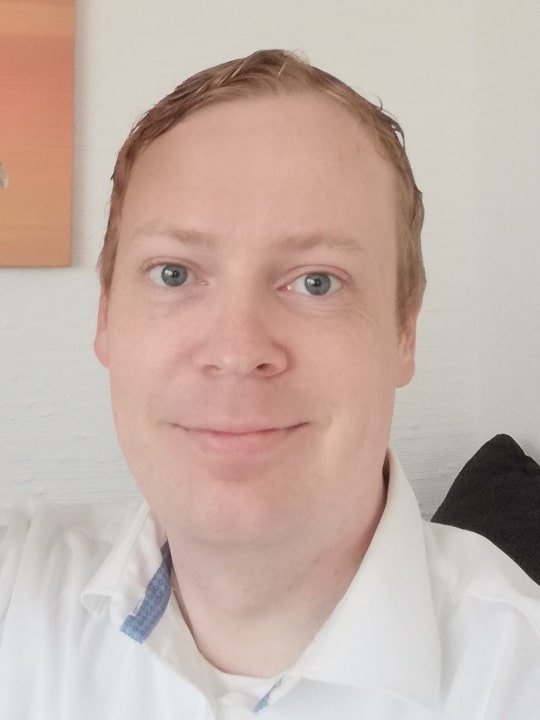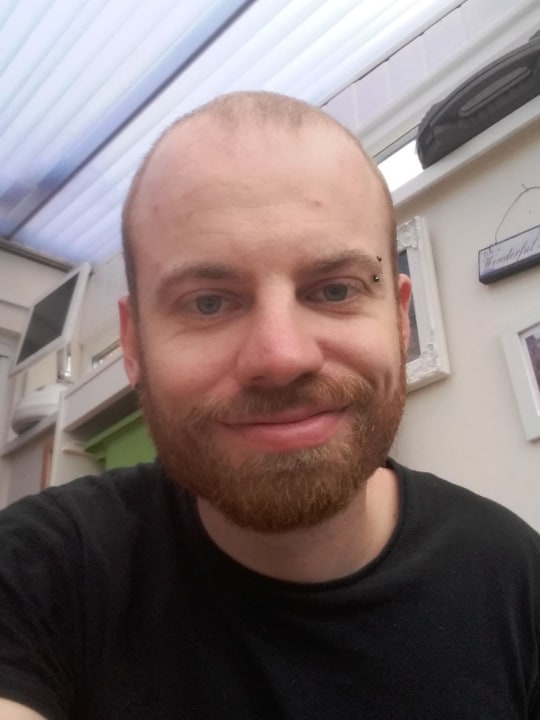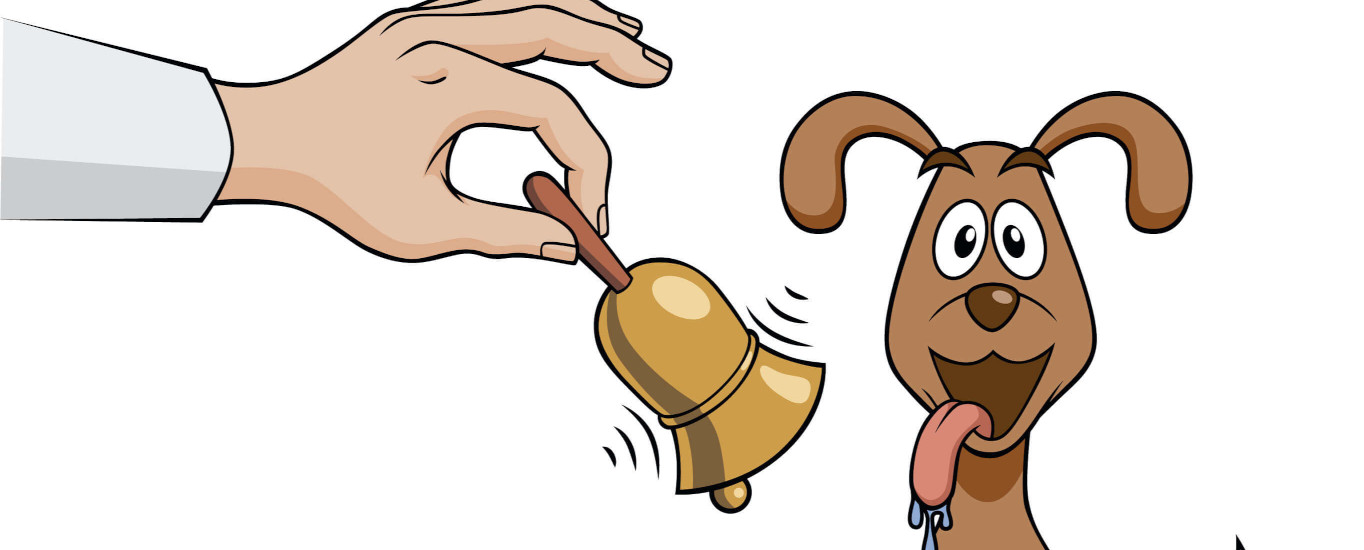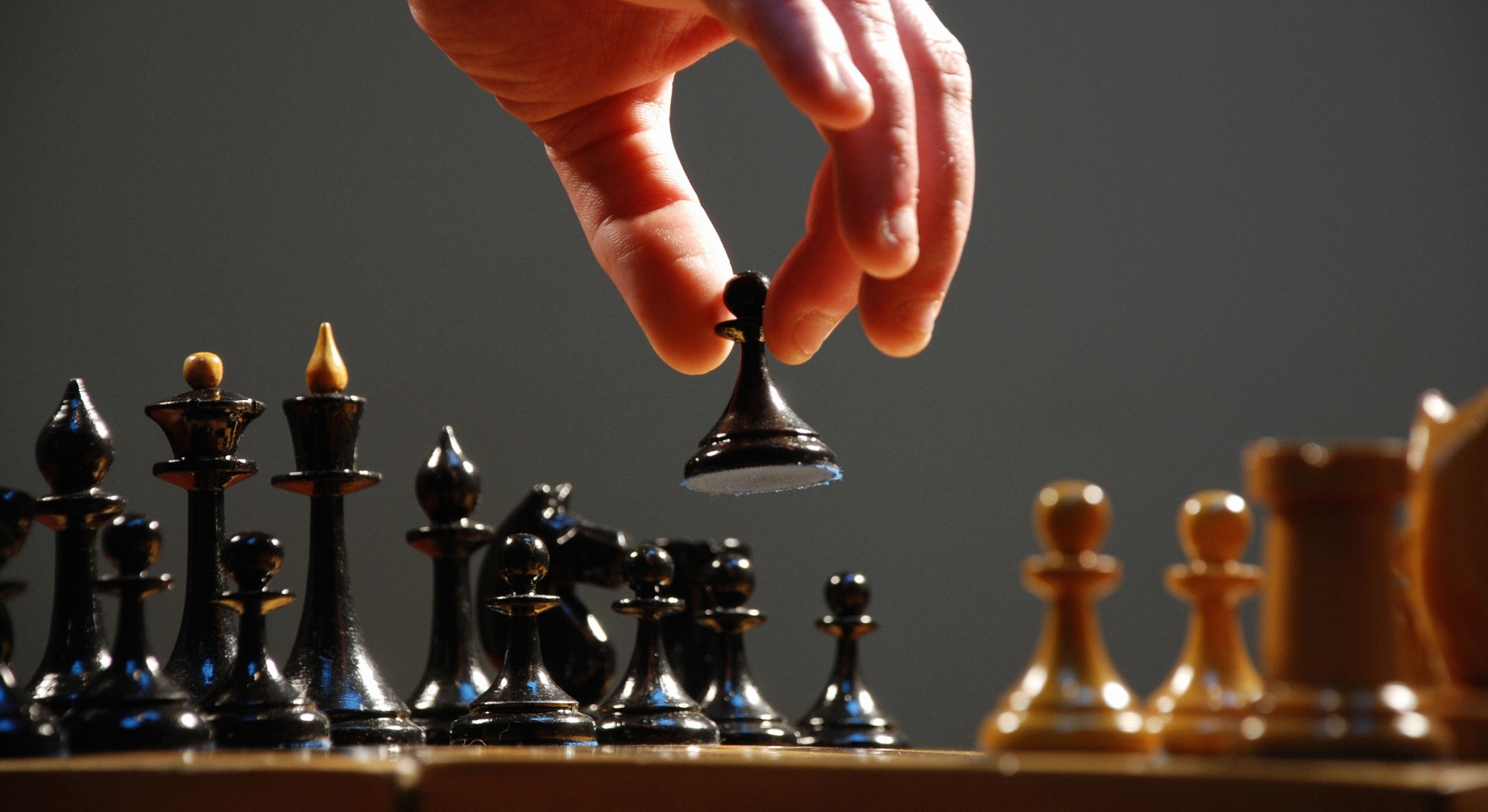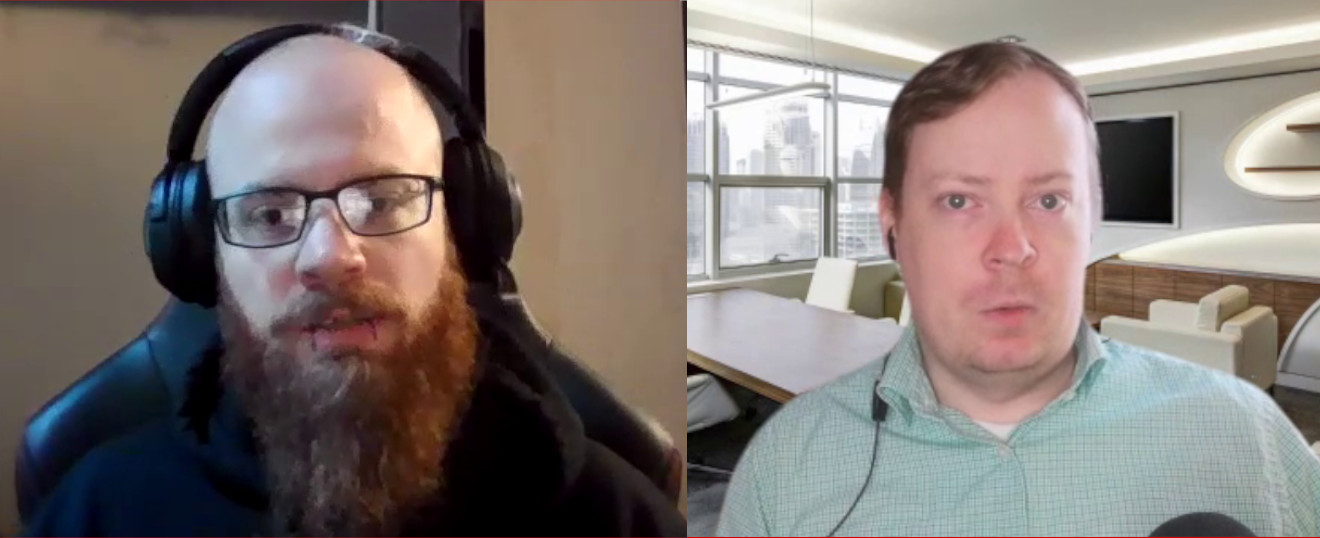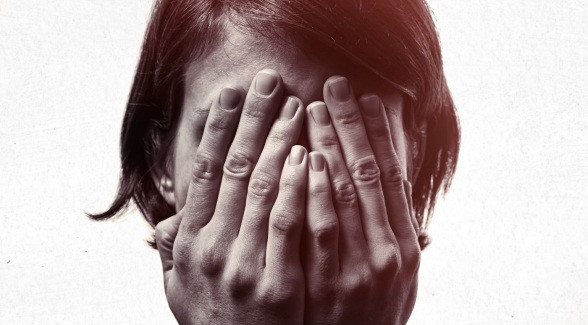What influence does technology have on the fabric of society? Is it a curse or an opportunity for progress? Today William and Steven discuss the effects that artificial has had and might yet have, the dangers and how to ensure that life with machines runs harmoniously with common values.
Watch a Short Excerpt:
Transcript (continued):
Steven: Often we think too big in life. We think somehow we must make a massive political or social, cultural change, whatever, as you say. But just one step at a time in your own little circle of yourself and then your circle friends, and those you associated with.
William: I think that that's the ideal way for humanity to make progress. I don't like this hierarchical view that so many of us have that there's always one at the top who is the leader and makes decisions for everyone else. Obviously some people need guidance. They need to mature before they develop the self-discipline. And that happens through example, sometimes through force. But, I don't know. It's a bit like parenting.
Steven: Yeah. Education tends to be that medium these days, because parenting doesn't really happen much anymore. It's you get parented, you get taught at school, whereas you just get taught at home as well. Whereas now you come home, you go out with your friends, you go to where you want, really.
William: Many homes don't have two parents.
Steven: Or three, or four. Just, weirdly, this is a completely different side topic here I thought about this week: about the family structure and how, it was grating my brain, we have such a rigid parental structure. Because you're only being influenced by two people, and both those people have their own kind of, probably, likely have similar perspectives to a degree because that's where they got together and got married. And then you're locked into a parental unit that is very one-sided. And I'm like "why haven't we, as a culture, evolved or progressed where, you know, you have, I don't know, five parental figures, like male and female figures within a social structure to allow for a massive amount of progress in both parts. Like the parents themselves would have to deal with each other. So therefore they would benefit from that side of ... not conflict, that's the wrong word, but just like different perspectives. And the child would get loads of them. And they would all harmonize and just be like "this is a list of perspectives. No one's right or wrong. It's just different ways of thinking." But yes, this is just idealistic, stupid unicorn-type mentality. But just the last week or two I was just thinking about that: "Yeah, it's so narrow. The structure we have."
William: Well, I enjoy your questioning processes. Are just the way they've always been? Do they really need to be that way? My first answer to this particular question was going to be "Well they are the biological parents." But when you adopt a child you can, from what I hear, you can love them just as much as biological parents.
Steven: Yes, love isn't a biological thing, is it?
William: I don't know.
Steven: Okay.
William: I don't know. Is there a bond between a parent and a child? Also think of other species like fish or something. Do they feel a connection? Or is it always ...?
Steven: We assume we are the only beings that, at least in this world, are capable of a higher level of love, or whatever.
William: I suppose so, yeah. I never thought about it that way.
Steven: Because you have a physical attachment, which is your chemistry, which we sometimes call love. But actually that tends to be more ... not lust, that's the wrong word, but a physical connection-type thing. But love itself actually often overrides the physical. Because physical things like jealousy can come into your brain, for survival reasons, evolutionary reasons. Obsession, we we often mistake love for obsession, and then actually if you do love someone you're able to override that obsession because you see the bigger picture. When it comes to children, linking it back, I think you can very much as an individual have a capacity to love beyond what is physical. Just my random thoughts.
William: It makes sense, what you're saying. I have heard about the biological imperative: that we all have this drive in us to keep our genetic material alive. I've actually met people who said explicitly that for them the purpose of life is to keep their genes going. So even when they as an individual die, they are happy knowing that, I guess, at least half of their material, that mixed with with that of their partner, lives on in their children. So there is that. I've never felt the need to keep my DNA or whatever alive. I don't know.
Steven: Well it's just that the first people you've spoken to have said it consciously. Because for most people is just a subconscious thing. It's just like a genetic thing. It's an evolutionary thing to keep the species alive. They just have that drive to make sure.
William: Yeah, and we will kill other species to make sure that ours survives.
Steven: Quite fascinating. Just a side tangent.
William: No, it's interesting. It's part of the overall topic of personal identity, like being a child in a family with two parents, or is something else possible?
Steven: Because having one parent can be just as beneficial as having 20 parents, let's say, or two parents, or even more so. It all depends I guess on individual circumstance. And I guess ... that's my own little conclusion from my little tangent right now. Ultimately I don't think it matters, because as long as you're getting what is classed as good and loving upbringing, it shouldn't matter whether it's one, two, twelve, whatever.
William: Yeah, in some culture the larger family has more importance, like children will have more contact with their grandparents, and they will all live in one big house. I've even seen that in Germany, you know, with single families, not the whole settlement or something. But there are certain cultures that have a slightly different view. But yeah, the two-parent thing is a predominant one, as far as I know. I heard that communism had a slightly different view on this as well: that the ties, the biological ties didn't matter as much, I don't know, there were some very liberal family conditions, I guess, or just living conditions where several families live together and all the adults raised all the children, no matter who was whose progenitor. And maybe I'm connecting this with communism because everyone just belonged to the state. Anyway, everyone was on one level, and it's like your children didn't even belong to you. I mean, you have the same connection to them as to everyone else, because everyone was equal under the state. Yeah, we should get into that more in a separate episode.
Steven: I think you're right.
William: When I feel better prepared.
Steven: Yeah, my bad. just having some random thoughts come into my head.
William: You have a link back? Okay.
Steven: Well no. I was gonna say, well linking it back: We were talking about regulation of the machines and, I guess, a weird link / segue is that regulating machines and regulating humans, that's the same.
Other Episodes:
Ep. 51: How Conditioned Are We ?
How much of what you do, think and feel comes from intentional, free chosing? How much of your actions and decisions are pre-programmed? You are the product of your upbringing, culture and genetics. What is out of our control? What can we influence? How can we counteract our predestination?
Ep. 50: What Am I Responsible For ?
Are you taking too little responsibility for your actions, or perhaps too much? How much are you able to understand or determine the consequences of your decisions? Are you in control of anything? Is free will an illusion? Can you do something to improve your thoughts, feelings and relationships with...
Ep. 49: Empathy Can Be A Super Power
Everyone has the choice of either living isolated from other people and their own feelings on the one hand, or to connect with others and their own emotional core. The road towards connectedness involves vulberability and weakness. But it leads to a very rewarding ability that includes deeper understanding of...
Ep. 48: Why Am I Ashamed?
What secrets do you have? What facts about you must never become known to others? What happens in our childhood that implants beliefs in us that hide away for the rest of our life? Can we uncover them deliberately? Can we regain the emotional freedom and levity that playing children...


